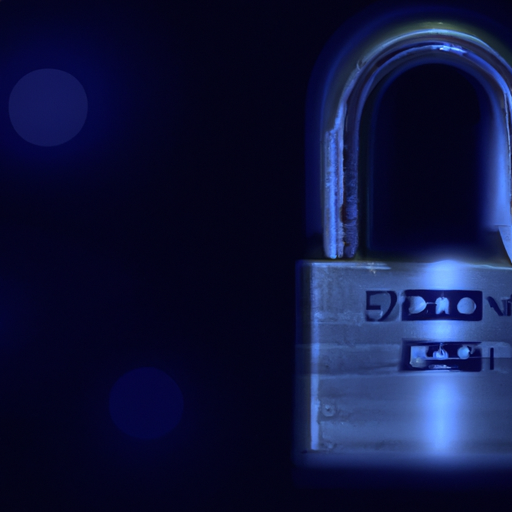Is PCI compliance crucial for businesses? Understanding the importance of PCI compliance is paramount for any company that handles credit card transactions. Ensuring the security and protection of customers’ sensitive data is not only a legal and ethical responsibility but also a key factor in building trust with customers. This article will explore the significance of PCI compliance and the potential consequences of disregarding its requirements. Stay tuned to discover why businesses should prioritize PCI compliance to safeguard their reputation and protect themselves from costly data breaches.

What is PCI Compliance?
Definition of PCI Compliance
PCI compliance refers to the set of security standards and practices that businesses must adhere to in order to protect the personal and financial information of their customers during payment card transactions. It stands for Payment Card Industry Data Security Standard (PCI DSS), which was developed by the major credit card companies, including Visa, MasterCard, American Express, Discover, and JCB International. This compliance framework ensures that businesses are securely handling cardholder data and maintaining a safe environment for payment processing.
The Purpose of PCI Compliance
The primary purpose of PCI compliance is to ensure the security and integrity of cardholder information throughout the payment card process. By implementing the PCI DSS requirements, businesses can safeguard customer data, mitigate financial risks, meet legal and regulatory obligations, and maintain trust and reputation. PCI compliance provides a standardized framework that sets the baseline for security measures and enables businesses to enhance data protection and minimize the risk of data breaches.
The Importance of PCI Compliance
Protecting Customer Data
One of the key reasons why PCI compliance is crucial for businesses is the protection it provides for customer data. Customers trust businesses with their sensitive information, including credit card numbers, names, and addresses. Failure to secure this data can lead to severe consequences for both the business and the customers. By complying with PCI standards, businesses establish robust security measures that ensure the confidentiality, integrity, and availability of customer information, reducing the risk of data breaches and identity theft.
Mitigating Financial Risks
PCI compliance plays a vital role in mitigating financial risks associated with payment card transactions. Data breaches can result in significant financial losses, including the costs of forensic investigations, customer notification, legal fees, potential fines, and even lawsuits. Non-compliance with PCI standards can also lead to increased interchange fees charged by credit card companies. Therefore, by achieving and maintaining PCI compliance, businesses can minimize the financial risks that arise from data breaches and non-compliance.
Maintaining Trust and Reputation
Maintaining trust and a good reputation is essential for any business. Customers are more likely to continue doing business with companies that demonstrate a commitment to protecting their personal and financial information. By complying with PCI standards, businesses send a clear message to their customers that they take data security seriously. This fosters customer trust, enhances loyalty, and strengthens the overall reputation of the business. On the other hand, a data breach resulting from non-compliance can have a devastating impact on a business’s reputation and may result in the loss of existing and potential customers.
Meeting Legal and Regulatory Requirements
Complying with PCI standards helps businesses meet legal and regulatory requirements related to the protection of cardholder data. Various countries have implemented laws and regulations that require businesses to safeguard sensitive customer information. Failure to comply with these requirements can result in legal consequences, including fines and legal action. By adhering to PCI compliance, businesses can ensure they are in line with the applicable laws and regulations, reducing the risk of legal consequences and potential reputational damage.

Benefits of PCI Compliance
Preventing Data Breaches
PCI compliance significantly reduces the risk of data breaches. By implementing the comprehensive security measures outlined by the PCI DSS, businesses create a secure environment for handling customer data, making it more challenging for hackers and cybercriminals to infiltrate their systems. The PCI DSS requirements cover various aspects of data security, including encryption, network security, access controls, and vulnerability management, thereby preventing unauthorized access to cardholder data and reducing the potential for data breaches.
Reducing the Risk of Cyber Attacks
Cyber attacks are becoming increasingly sophisticated and prevalent, posing a constant threat to businesses of all sizes. PCI compliance helps mitigate the risk of cyber attacks by implementing robust security measures and best practices. By adhering to the PCI DSS requirements, businesses establish a strong security posture, including regular vulnerability scans, secure coding practices, and network segmentation. These measures make it more difficult for cybercriminals to exploit vulnerabilities and gain unauthorized access to sensitive data, protecting both the business and its customers.
Avoiding Financial Penalties
Non-compliance with PCI standards can result in substantial financial penalties imposed by credit card companies and acquiring banks. These penalties can be in the form of fines, increased transaction fees, or even a complete suspension of the ability to accept payment cards. Achieving and maintaining PCI compliance helps businesses avoid these financial penalties. By investing in robust security measures and continuous compliance efforts, businesses minimize the risk of non-compliance and the associated financial consequences.
Strengthening Customer Confidence
PCI compliance enhances customer confidence in a business’s ability to protect their personal and financial information. When customers see the PCI compliance seal or logo, they know that the business has met stringent security standards and is committed to safeguarding their data. This sense of assurance leads to increased customer trust and loyalty. Customers are more likely to engage in transactions with businesses they perceive as secure and trustworthy, resulting in long-term customer relationships and positive word-of-mouth recommendations.
Understanding the PCI DSS
Overview of the PCI Data Security Standard (PCI DSS)
The PCI Data Security Standard (PCI DSS) is a comprehensive set of security requirements that businesses must meet to achieve and maintain PCI compliance. It consists of twelve high-level requirements, subdivided into various sub-requirements, that cover different aspects of data security. The goal of the PCI DSS is to provide a common set of security measures that protect cardholder data, prevent data breaches, and establish a secure environment for payment card transactions.
Requirements of the PCI DSS
The PCI DSS includes twelve overarching requirements that businesses must fulfill to achieve compliance. These requirements include installing and maintaining firewalls, securing cardholder data through encryption, regularly updating anti-virus software, implementing strong access controls, conducting regular vulnerability management, and maintaining an information security policy. Each requirement has specific sub-requirements that provide detailed guidelines for achieving compliance. By adhering to these requirements, businesses can ensure the integrity and security of cardholder data.
Levels of Compliance
PCI compliance is not a one-size-fits-all approach. The PCI DSS distinguishes between different levels of compliance based on the volume of transactions processed by a business. Level 1 is the highest level of compliance and applies to businesses that process over six million transactions per year. Level 2 applies to businesses that process between one and six million transactions, while Level 3 applies to those processing between 20,000 and one million transactions. Level 4 is for businesses that process fewer than 20,000 transactions annually. The specific compliance requirements and validation methods vary according to the level of compliance.

Steps for Achieving PCI Compliance
Assessing and Scoping
The first step towards achieving PCI compliance is conducting a thorough assessment to determine the scope of the compliance effort. This includes identifying all systems, processes, and personnel that interact with cardholder data. The assessment helps businesses understand the scope of their compliance responsibilities and identify any vulnerabilities or gaps in their security measures. It is essential to involve all relevant stakeholders, including IT personnel, security experts, and business owners, in the assessment phase to ensure a comprehensive understanding of the business’s PCI compliance requirements.
Remediating Vulnerabilities
Once the assessment is complete, the next step is to remediate any vulnerabilities or gaps identified during the assessment. This may involve implementing necessary security controls, patching systems, updating software, improving network segmentation, or enhancing employee training. It is crucial to prioritize remediation efforts based on the level of risk and potential impact on cardholder data. Regular vulnerability scans and penetration testing should be conducted to identify and address any new vulnerabilities that may arise.
Implementing Security Measures
Implementing appropriate security measures is a fundamental aspect of achieving PCI compliance. Businesses must adhere to the specific requirements outlined in the PCI DSS, such as installing firewalls, encrypting cardholder data, implementing strong access controls, and regularly updating anti-virus software. These security measures ensure the protection of sensitive data throughout the payment card process. It is essential to document all security measures implemented and maintain comprehensive records to demonstrate compliance during audits.
Conducting Regular Audits
Regular audits are necessary to validate PCI compliance and ensure that businesses continue to meet the required security standards. Audits can be conducted internally or by an external Qualified Security Assessor (QSA) appointed by the business. The auditing process involves reviewing security controls, assessing vulnerabilities, and verifying compliance with the PCI DSS. Audits should be conducted at least annually, although more frequent audits may be required depending on the business’s level of compliance and industry regulations.
Common Challenges in Achieving PCI Compliance
Complexity of Compliance Process
Achieving and maintaining PCI compliance can be complex and challenging for businesses, particularly those without dedicated IT or security departments. The technical nature of the requirements and the constantly evolving threat landscape can make compliance efforts overwhelming. It is essential for businesses to seek guidance from experts and leverage available resources, such as the PCI Security Standards Council’s website and industry-specific compliance tools, to navigate the complexities of the compliance process effectively.
Confusion regarding PCI Requirements
Understanding the specific requirements of the PCI DSS can be a source of confusion for businesses. The language used in the PCI DSS documents can be technical and challenging to interpret. Additionally, the requirements may differ depending on the business’s level of compliance. This confusion can lead to misinterpretations and misapplications of the standards, resulting in non-compliance. Businesses must dedicate time and resources to educate themselves about the specific requirements and seek clarification from experts when needed.
Lack of Resources and Expertise
Many businesses struggle with achieving PCI compliance due to a lack of resources and expertise. Implementing the necessary security measures and maintaining compliance requires investment in technology, personnel, and training. Small businesses, in particular, may face financial constraints that limit their ability to allocate resources to compliance efforts. In such cases, outsourcing compliance tasks to qualified service providers or seeking assistance from consultants can help bridge the gap and ensure compliance.
Costs Associated with Compliance
Achieving and maintaining PCI compliance comes with associated costs. Businesses must invest in security technologies, personnel training, vulnerability scanning tools, and regular audits. These costs can be a barrier for smaller businesses, especially those with limited budgets. However, it is important to weigh the potential costs of non-compliance, including fines, legal consequences, and reputation damage, against the costs of achieving and maintaining compliance. The long-term benefits of compliance often outweigh the initial investment.
Consequences of Non-Compliance
Financial Penalties
Non-compliance with PCI standards can result in severe financial penalties imposed by credit card companies and acquiring banks. These penalties can range from a few thousand dollars to substantial fines that can cripple a business financially. The exact amount of the penalties depends on the severity of the non-compliance, the number of cardholder records compromised, and the merchant’s history of compliance. The financial impact of non-compliance can be significant, and businesses may struggle to recover from the financial burden.
Loss of Customer Trust
A data breach resulting from non-compliance can lead to a loss of customer trust. When customers’ personal and financial information is compromised, they may feel betrayed and lose confidence in the business’s ability to protect their data. Customer trust is difficult to rebuild once lost, and the negative impact of a data breach on a business’s reputation can be long-lasting. The loss of customer trust can result in a decline in sales, decreased customer loyalty, and damage to the overall brand image.
Legal Consequences
Non-compliance with PCI standards can have legal consequences for businesses. Various countries and regions have enacted laws and regulations specifically addressing the protection of cardholder data. Failure to comply with these legal requirements can result in fines, penalties, legal action, or even the suspension of a business’s ability to process payment cards. It is essential for businesses to understand and adhere to the applicable laws and regulations to avoid the legal consequences associated with non-compliance.
Reputational Damage
Reputational damage is a significant consequence of non-compliance with PCI standards. A data breach can attract negative media attention and damage a business’s public image. The loss of customer trust, negative reviews, and word-of-mouth spread of the breach can tarnish a business’s reputation, impacting its ability to attract new customers and retain existing ones. Rebuilding a damaged reputation can be a challenging and time-consuming process, making the focus on PCI compliance crucial to protect business reputation.
PCI Compliance for Different Business Types
E-commerce Businesses
E-commerce businesses that handle payment card transactions online must adhere to PCI compliance requirements. Online transactions present unique security challenges, as customer data is transmitted over the internet, making it more vulnerable to interception and breaches. E-commerce businesses must implement robust security measures, such as secure payment gateways, encryption, and secure coding practices, to protect customer data and achieve PCI compliance.
Retail and Merchants
Retail establishments and merchants that accept payment cards in-store are also subject to PCI compliance requirements. These businesses must secure their Point of Sale (POS) systems, implement secure network configurations, and train employees on proper card handling procedures. Physical security measures, such as secure storage of cardholder data and access controls, are also crucial for achieving PCI compliance in a retail setting.
Service Providers
Service providers that handle payment card transactions on behalf of other businesses, such as payment processors, hosting providers, or software providers, must also comply with PCI standards. These service providers play a critical role in processing, transmitting, or storing cardholder data. They must implement robust security measures and demonstrate compliance to their clients by undergoing regular audits. Failure to comply with PCI standards can result in reputational damage and legal consequences for service providers.
Hospitality Industry
The hospitality industry, including hotels, restaurants, and resorts, collects and stores sensitive customer information during payment card transactions. These businesses must adhere to PCI compliance requirements to protect their customers’ data. Hospitality businesses must implement secure payment processing systems, secure Wi-Fi networks, and employee training programs to ensure compliance with the PCI standards. Regular audits and vulnerability assessments are essential in maintaining ongoing compliance in this industry.
Maintaining Ongoing Compliance
Regular Security Assessments
Maintaining PCI compliance requires regular security assessments to identify any vulnerabilities or gaps in security measures. These assessments can be conducted by internal teams or external auditors. Vulnerability scans, penetration testing, and network security assessments help businesses identify and address potential security weaknesses. By conducting these assessments regularly, businesses can stay proactive in their compliance efforts and ensure continuous adherence to PCI standards.
Updating and Patching Systems
Keeping systems and software up to date is crucial for maintaining PCI compliance. Regularly updating and patching systems helps address potential vulnerabilities that may be exploited by hackers. Businesses must maintain a robust patch management process, ensuring all systems and software are updated promptly with the latest security patches and updates. Failure to keep systems up to date can expose businesses to increased risk and threaten their compliance status.
Employee Training and Awareness
Employees play a critical role in maintaining PCI compliance. Businesses must provide comprehensive training programs to educate employees about the importance of data security, the specific PCI requirements, and proper card handling procedures. It is essential for employees to understand the potential risks associated with mishandling cardholder data and the security measures in place to protect sensitive information. Ongoing training and awareness programs ensure that all employees remain vigilant and compliant.
Staying Informed about Changes in PCI DSS
The PCI DSS requirements are continually evolving to address emerging security threats and technologies. It is crucial for businesses to stay informed about any changes or updates in the PCI DSS to ensure ongoing compliance. The PCI Security Standards Council publishes updated versions of the standards periodically, and businesses should review these updates and adjust their security measures accordingly. Staying informed through industry publications, attending conferences, and engaging with security experts can help businesses stay ahead of the curve and maintain ongoing compliance.
Conclusion
PCI Compliance as a Business Essential
PCI compliance is crucial for businesses of all sizes and industries that handle payment card transactions. Protecting customer data, mitigating financial risks, maintaining trust, and meeting legal obligations are just some of the reasons why businesses should prioritize achieving and maintaining PCI compliance. By implementing the security measures outlined in the PCI DSS, businesses can prevent data breaches, reduce the risk of cyber attacks, avoid financial penalties, and strengthen customer confidence.
Continued Focus on Compliance
PCI compliance is not a one-time effort; it requires ongoing focus and dedication. Businesses must regularly assess and remediate vulnerabilities, implement the necessary security measures, and conduct regular audits to ensure ongoing compliance. By staying informed about changes in the PCI DSS and investing in employee training and awareness programs, businesses can maintain a strong security posture and safeguard customer data effectively. Continued focus on compliance is essential in today’s constantly evolving cybersecurity landscape to protect both the business and its customers.
